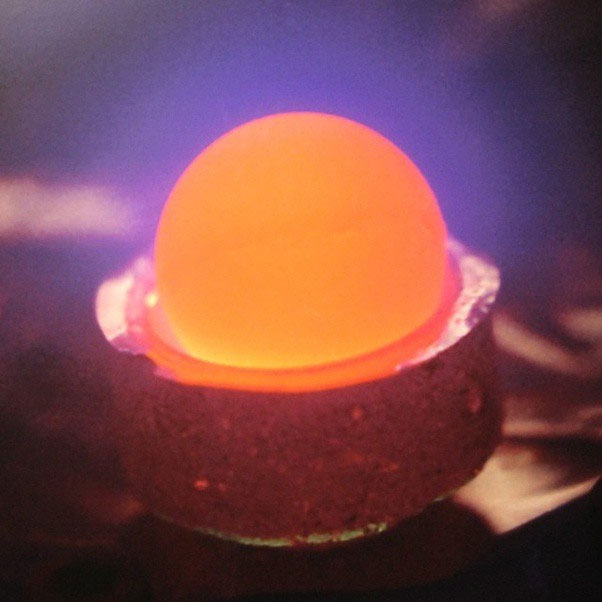This is the rarest element in the Earth, not yet observed, it has disappeared into nowhere!
There is a question on Quora like this: What is the rarest matter on Earth? With a rich mind, many of us will think of precious metals as gold or similar precious elements. But science has another answer.
The answer below is provided by Isaac Dixon. Mr. Dixon himself is not a scientist, but his detailed and neat answer received approval from Frederic Rachford, professor of physics and Marek Kobera, professor of Mathematics and Physics.
Elements from 1 to 92 (except for positions 43 and 61) all appear in the Earth's natural environment, some of which exist only in very small amounts. Others, along with a few isotopes of natural elements, are products coming out of the laboratory.
No element has an atomic number greater than 99 that has a practical application, they are used only in scientific research because their half-life is extremely short, unable to mass produce those elements. .

This is Plutonium, the first element synthesized by science, with a half-life of 88 years:
Plutonium is not the rarest element, the science later found something even rarer.
The title must belong to Hydrogen-7 , made up of 1 proton and 6 neutrons. The first time Hydro-7 appeared in 2003, created by a group of scientists from Russia, Japan and France.

Since there is no picture of Hydrogen-7, please take a look at the pure hydrogen light shining in the jar.
Hydro-7 has a half-life of 23 yocto-seconds, equivalent to 0.0000 trillion trillion seconds. This makes the Hydro-7 a radioactive isotope with the lowest half-life. Science doesn't have any photos of Hydro-7, it's easy to understand, who can take a picture of something that only exists for such a short time?
- The element has a half-life of 1 billion times the life of the universe
- Confirm the existence of the 117th chemical element
- Listening to an expert explaining that 'rare earth is not as rare as the name'
- Earth's neutrino particle was first observed
- Are we all Mars?
- The elemental secret in the heart of the Earth
- Composition and effects of rare earth
- Life in the earth comes from Mars
- Video: Discover everything about Earth
- The chemical is dubbed 'the element of the devil'.
- The Element: Intel's latest weapon to modularize personal computers
- 4 new elements in the periodic table have been named by scientists
 'Fine laughs' - Scary and painful torture in ancient times
'Fine laughs' - Scary and painful torture in ancient times The sequence of numbers 142857 of the Egyptian pyramids is known as the strangest number in the world - Why?
The sequence of numbers 142857 of the Egyptian pyramids is known as the strangest number in the world - Why? History of the iron
History of the iron What is alum?
What is alum?